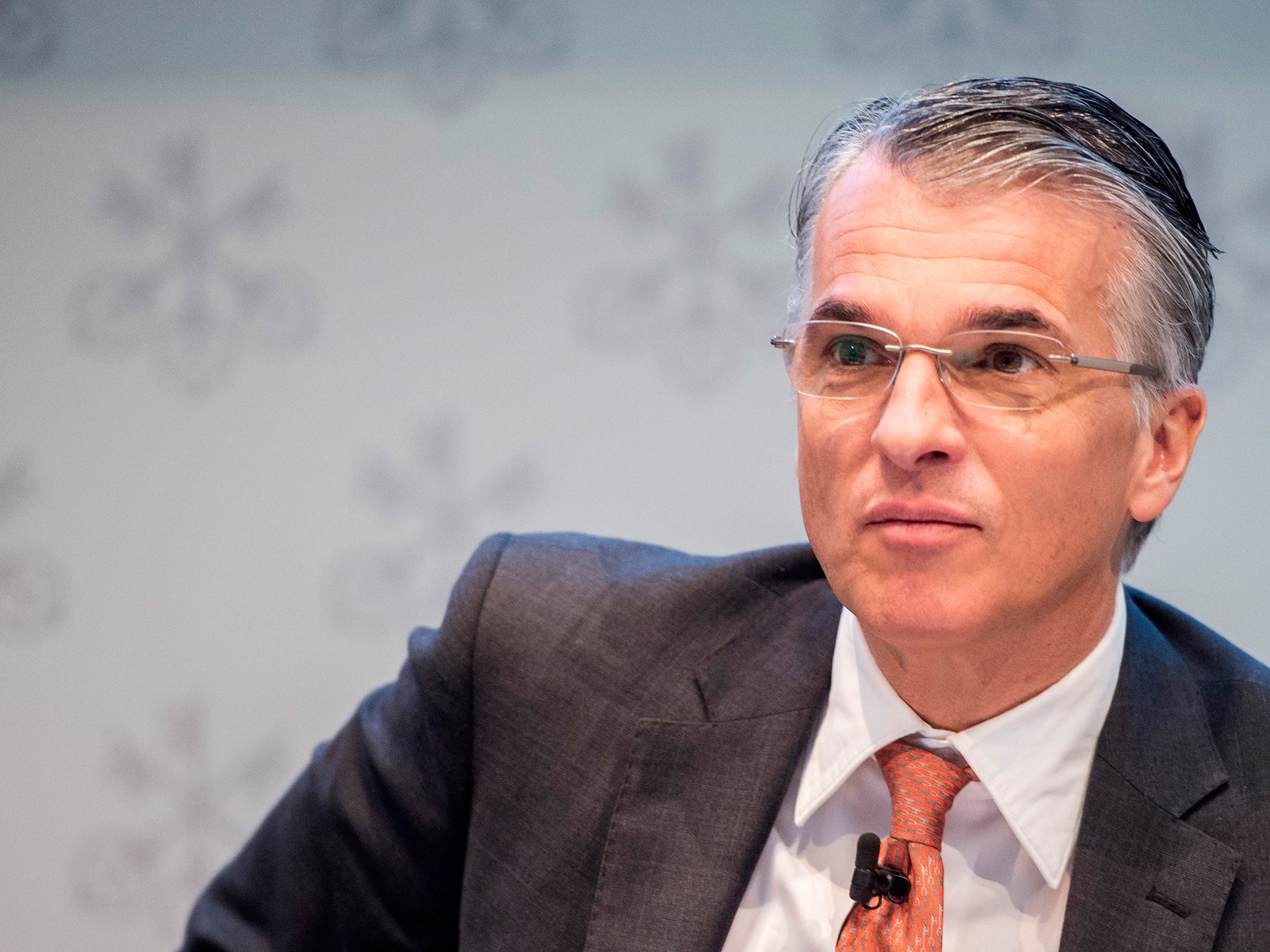UBS pays $545 million to settle rigging allegations, pleads guilty over Libor
Five of the world's biggest banks are expected to be fined a combined $5 billion over accusations that they rigged foreign currency markets on Wednesday

UBS, the Swiss bank, has said it will pay a $545 million fine to US authorities for combined allegations relating to currency and interest rate rigging. It will also plead guilty to fraud in the Libor interest rate rigging scandal.
UBS has avoided a criminal charge over the currency scandal.
The UBS fines come as five of the world's biggest banks are expected to be fined a combined $5 billion over accusations that they rigged foreign currency markets on Wednesday.
The $545 million settlement is reported to include $202 million penalty after it pleaded guilty to rigging the Libor rate, a rate of interest used when banks lend money to one another.
“The conduct of a small number of employees was unacceptable and we have taken appropriate disciplinary actions,” Axel Weber, the bank’s Zurich-based chairman and Sergio Ermotti, UBS chief executive, said in a statement.
JPMorgan and Citigroup in the US and Royal Bank of Scotland and Barclays in the UK are expected to plead guilty to charges that they rigged currency markets on Wednesday. The admission of guilt would be unprecedented in ongoing investigations into currency and interest rate rigging so far.
The fresh penalties would bring the total paid to authorities by banks to more than $10 billion.
Barclays is expected to pay around $2 billion - more than other banks - as it attempts to settle charges. It has reportedly set aside $3.2 billion to cover fines, almost as much as its entire 2014 pre-tax profits of $3.5 billion.
Additional reporting by Reuters
Want to know more? Read our explainer:
How did banks rig currency markets ?
In basic terms banks have been accused of colluding for at least a decade to manipulate exchange rates for their own gain.
Traders did this by operating around the fix – a mechanism used to determine the benchmark exchange rate or price of major currencies, which is used to value trillions of dollars in investments held by pension funds and money managers. One of the most common fixes happens at 4pm in London.
Why did they do it?
If traders could move the rate it could potentially make more of a profit.
Traders are said to have come together to do that in chatrooms with names like the cartel and the bandits club.
There they allegedly shared information on upcoming client orders – which are usually confidential.
In one scheme they got the pound-dollar rate down by sharing clients’ buying and selling secret information. They agreed to carry out their own trades to move the rate to where they wanted it. Within minutes one of the banks involved made over a £100,000.
Who lost out?
Mainly the banks clients lost out because they were paid rates that were much worse than the true rates in the market.
Those could be anyone frim a hedge fund placing a bet on the markets to a major corporate changing money for a big overseas transaction.
What was in it for the traders?
The traders didn’t actually make any money from rigging the markets themselves. But if their team consistently made higher profits, that would have been taken into account when their bonuses were awarded at the end of each year.
What has been done about it?
Six major banks including RBS and HSBC were fined £2.6 billion last year for their role in the scandal.
Barclays, which did join the mass settlement, has set aside £2 billion to cover its bill relating to the investigation.
Around 40 FX staff at bank have been suspended, put on leave or let go because of their involvement.
There has been one arrest of a former RBS trader.
Are banks changing?
Banks are cracking down on the use of chat rooms, or changing the layout of the trading floors to make monitoring staff easier.
Subscribe to Independent Premium to bookmark this article
Want to bookmark your favourite articles and stories to read or reference later? Start your Independent Premium subscription today.

Join our commenting forum
Join thought-provoking conversations, follow other Independent readers and see their replies